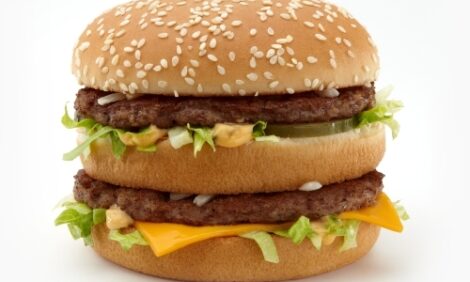



Sustainable Solution to Help Optimise Productivity
AUSTRALIA - A recent nutritional study utilizing 201 Droughtmaster stud bulls conducted in Rockhamptom, Queensland, Australia by Novus International, Inc., produced a sustainable solution with significant results that directly enhance reproductive performance, and numerical improvements in average daily gain and feed efficiency.During the 80-day study, the treatment group received the same Total Mixed Ration (TMR) as the control with the addition of AGRADO® Plus feed ingredient, MINTREX® Beef chelated trace mineral (a combination of Zinc, Copper and Manganese) and ZORIEN® SeY yeast feed additive. Bulls treated with the Novus Oxidative Balance Program outperformed the control with numerically improved feed efficiency and average daily gain, and significantly enhanced antioxidant status. By enhancing the health of beef cattle and enabling them to perform more efficiently, the Novus Oxidative Balance Program is an example of a sustainable solution that helps producers maximize output.
“The Bull Trial in Queensland, Australia reflects our commitment to develop local, sustainable solutions for the worldwide marketplace,” said Stephanie Gable, Exec. Manager, Beef and Dairy Applied Solutions, at Novus. “By helping animals achieve oxidative balance, they perform more efficiently and are better able to reach their genetic potential.”
With worldwide demand for beef on the rise, producers are under increased pressure to reduce costs, improve productivity and deliver higher quantities of food. Novus recognizes both the challenges and opportunities this pressure creates for beef producers and is focused on providing innovative, sustainable solutions for producers that lead to improved animal nutrition and optimized herd health.
In the past 30 years, beef producers have aggressively incorporated sustainable solutions that have reduced the industry’s impact on the environment. A study published in the December 18, 2011 Journal of Animal Science found that raising a pound of beef today uses significantly fewer natural resources, including land, water, feed and fuel than in the past. As a result of improved productivity, contemporary beef production systems use 33% less land, 12% less water, 19% less feed and 9% less fossil fuel energy than equivalent beef production in 1977 (Capper, 2010a).
Novus recently launched a new brand platform, “The Triple-S Bottom Line” – Solutions, Service and Sustainability. This platform reflects the company’s keen focus on developing products and nutritional solutions that enhance herd performance and reduce their environmental impact.
“At Novus, we view sustainability as a critical cornerstone of our vision to feed the world affordable, wholesome food and achieve a higher quality of life,” noted Gable. “We’re pleased with the results of the Bull Trial in Queensland, Australia and look forward to continuing to help producers all around the world improve their production efficiencies.”


